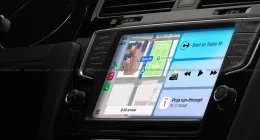SpaceX has recently been quite successful in launching and landing its Falcon 9 rocket booster, but today’s test doesn’t seem to agree with it. A new Falcon 9 rocket, which was supposed to launch a satellite this weekend has exploded on the launchpad itself, at Cape Canaveral in Florida.
This morning(ET), SpaceX was conducting a standard pre-launch static fire test for its unmanned rocket, but moments later, the rocket alongwith the payload blew up into tiny pieces. The blast was so strong that the tremors were felt even ‘several miles away’. The main blast was followed by smaller explosions which continued for several minutes and smoke filled the cloudy sky above.
According to a NASA spokesperson, the explosion occurred at Launch Complex 40 at the Air Force station of Kennedy Space Center. There was no immediate information available about the number of injuries, but SpaceX and NASA both have now confirmed that there is none.
[dfads params=’groups=-1‘]
It has also confirmed that both the rocket booster and the $200 million Israeli payload have been destroyed in the blast. The private space company still needs some time to dig deeper and detail the exact reason behind the blast, but an anomaly in the launch pad is being cited as the cause at the moment.
Statement on this morning’s anomaly pic.twitter.com/3Xm2bRMS7T
— SpaceX (@SpaceX) September 1, 2016

The Falcon 9 being tested today was ready to launch the AMOS-6, a communications satellite for Israel-based Spacecom. The satellite is a joint effort between Facebook and France’s Eutelsat to provide internet connectivity to about 14 African countries. The mission was scheduled for 3 a.m ET Saturday morning.
This is an unfortunate incident for SpaceX, who’s been increasing its launch frequency and accepting missions to launch satellites from various space agencies and satellite operators. It has recently also secured a deal from Luxembourg based satellite company SES to launch its payload via a used Falcon 9 rocket.
[dfads params=’groups=-1‘]
It had been just an year since its last mishap where a Falcon 9 rocket exploded during the launch in June. The company had then taken a six-month hiatus to optimize and rebuild another rocket for testing.
The private space company has successfully brought back a bunch of Falcon 9 boosters to Earth after a successful launch. It has completed six successful landings, including two on land and four on a floating seaship. This, however, would definitely degrade the employees and researchers morale who had worked hard to build a new Falcon 9 booster. A horrific sight and day for them, indeed!
The Tech Portal is published by Blue Box Media Private Limited. Our investors have no influence over our reporting. Read our full Ownership and Funding Disclosure →






